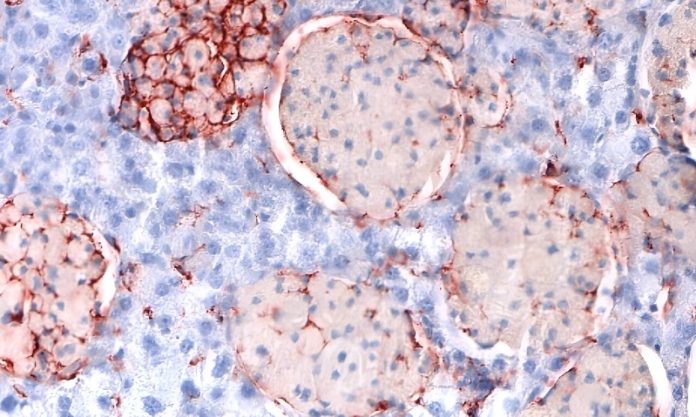
Millions of people worldwide suffer from liver inflammation (hepatitis), which can be caused by various factors, including metabolic disorders like fatty liver disease.
A rare genetic disorder called Lysosomal Acid Lipase (LAL) deficiency also leads to liver inflammation.
This disorder occurs when the body lacks an important enzyme needed to break down certain fats in cells, leading to a build-up of fats that cause liver inflammation.
A team of researchers from the Medical University of Graz has found a promising new way to treat liver inflammation caused by LAL deficiency.
Their research, published in the journal Gastro Hep Advances, shows that a drug called lanifibranor could help reverse the harmful effects of this rare disorder.
How LAL deficiency affects the liver
LAL deficiency is a genetic condition where the enzyme lysosomal acid lipase (LAL) is missing or doesn’t work properly.
This enzyme normally helps break down fats like cholesteryl esters and triglycerides in the lysosomes, the “recycling centers” of cells. Without it, these fats build up in the liver, causing inflammation and damage.
Dagmar Kratky, a researcher at the Medical University of Graz, explains that LAL deficiency leads to serious liver problems because the fats aren’t broken down properly. Until now, the only available treatment has been enzyme replacement therapy, which is expensive and only partly effective.
Lanifibranor: A new treatment option
The new research shows that the drug lanifibranor might be able to help people with LAL deficiency. In a study, mice with LAL deficiency were treated with lanifibranor for 21 days. The results showed that while the mice’s liver fat levels stayed the same, the drug helped reduce liver damage and inflammation.
Lanifibranor also improved the mice’s blood lipid levels and boosted proteins that help with energy production in cells.
These positive results suggest that combining lanifibranor with enzyme replacement therapy could be a more effective way to treat LAL deficiency. However, more research and clinical trials are needed to test lanifibranor’s effectiveness in humans.
Kratky and her team believe these findings could lead to a better treatment option for people with LAL deficiency. “This study gives hope for improved therapies for patients with this rare disorder,” Kratky says.
Further research could help make lanifibranor a key part of treating LAL deficiency and reducing liver inflammation.
If you care about liver health, please read studies that refined fiber is link to liver cancer, and the best and worst foods for liver health.
For more health information, please see recent studies about how to boost your liver naturally, and simple ways to detox your liver.



